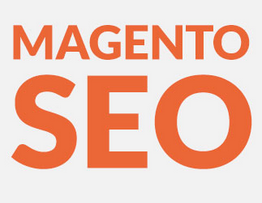
SEO is all the means undertaken to ensure that a website has a prominent place in the results of search engines. In this sense, it is necessary that your website stands out so that it can be easily found by your customers. Although it is possible to use paid referencing, working on the natural referencing of your Magento store contributes to its sustainability. Although Magento is optimized for natural SEO thanks to its modules. You will stand out from your competitors by improving the natural referencing of your website by following these few steps.
How to optimize a Magento store SEO
Set up a good URL structure
It’s about defining URLs that are descriptive, concise, easy to read, consistent with the content of the page, and lowercase. The goal is to have a comprehensive structure that works equally well with visitors and search engines. Eventually, you can opt for a structure: your_boutique.com/product-name or your_boutique.com/identifiers, if many products are alike. The Magento configuration section gives you access to the parameters to modify as you wish to achieve this result. Please also configure URL redirection when changing the product key.
Optimizing Meta Tags
Just as a good URL structure promotes good SEO for your Magento store, so does your page title and meta tags.
Choose an easy-to-read, preferably unique title, between 30 and 60 letters. the same thing goes for the meta description, this small text placed below the title of a search engine result. Since it describes the purpose of the page a little more, it is ideally between 70 and 155 letters.
Avoid duplicate content
This is a step that should not be overlooked. Duplicate content is indeed a common problem in the SEO world and Magento sites in particular. Whether it’s duplicate content from a competitor’s store or even duplicate content on your site, search engines will penalize your site and lower your SEO score.
This is a justified sanction since duplicate content looks a lot like spam, and interferes with the user’s understanding and experience.
Structure the website plan
A well-crafted sitemap can properly inform search engines of the pages to index. This will make sure that you keep your sitemap up to date, include only indexable pages, that it is not too large, and that you reference it in the robots.txt file.
Optimize images
Many of your visitors will discover your site from an image search. The images of your store are therefore not to be neglected. So, please compress your images to reduce their load on your hosting. Consider also using descriptive filenames for your images to better organize them and allow search engines to understand their content and classify them properly. Also, set the alt attribute to let your visitors and search engines know the content of your images.
Choosing a good Magento hosting
The loading speed of a page on your store has a big impact on the success of your website. The slower the pages of your store load, the more visitors will get bored and go to your competitors. As a result your SEO score will drop. You should therefore opt for efficient hosting, optimized for Magento, compatible with a CDN. A high-performance VPS Cloud server will do the job in most cases. For more speed, remember to activate the cache functions.
These techniques will allow you to considerably improve the natural referencing of your Magento store. You can always go further by installing SEO extensions for Magento